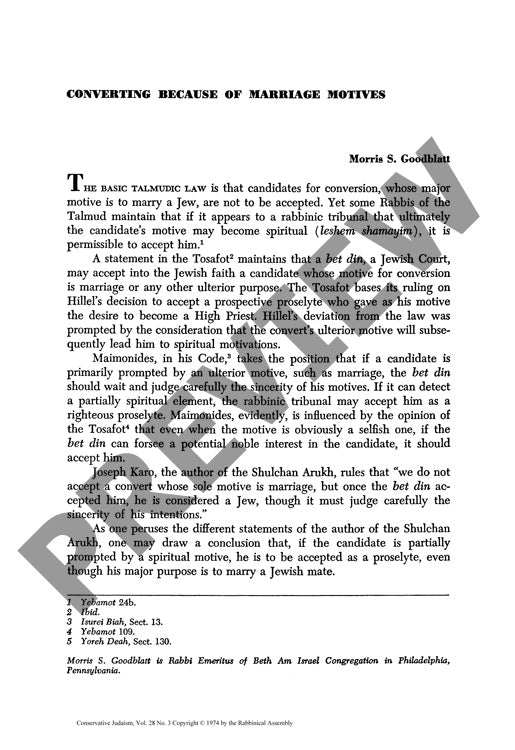Converting Because of Marriage Motives
Couldn't load pickup availability
For centuries, Orthodox Jewish authorities have grappled with a fundamental religious dilemma: whether to accept converts whose primary motivation is marriage to a Jewish spouse. While the Talmud explicitly prohibits such conversions, rabbinic responses have evolved dramatically from strict rejection toward nuanced acceptance, particularly in the modern era. Through systematic analysis of responsa literature and legal codifications from Talmudic times through the twentieth century, this research traces how leading authorities navigated this complex intersection of religious law and human relationships. Comprehensive examination of key halakhic sources—including the Talmud, medieval codifiers like Maimonides and Joseph Karo, and modern responsa from prominent Orthodox authorities in Europe and Israel—reveals a marked trend toward leniency among nineteenth and twentieth-century Orthodox rabbis. These later authorities, including Rabbis Shmelkes, Hoffman, Kluger, and Israeli Chief Rabbis Uziel and Unterman, developed sophisticated legal frameworks for accepting marriage-motivated converts when detecting potential spiritual elements or when refusal might lead to greater religious transgressions. Their decisions often invoked principles such as choosing lesser evils and preventing immoral behavior. The research demonstrates how changing social circumstances, particularly increased Jewish-Gentile interaction and rising intermarriage rates, have significantly influenced Orthodox halakhic decision-making. Contemporary rabbinic authorities maintain traditional conversion requirements while showing pragmatic flexibility—suggesting that marriage-motivated conversions may paradoxically prove more enduring than those based solely on religious conviction, due to the compelling nature of marital commitment and family unity within Jewish religious frameworks.

More Information
-
Physical Description
-
Publication Information
Published 1974
ISBN
-
Publication Credits
Morris Goodblatt

